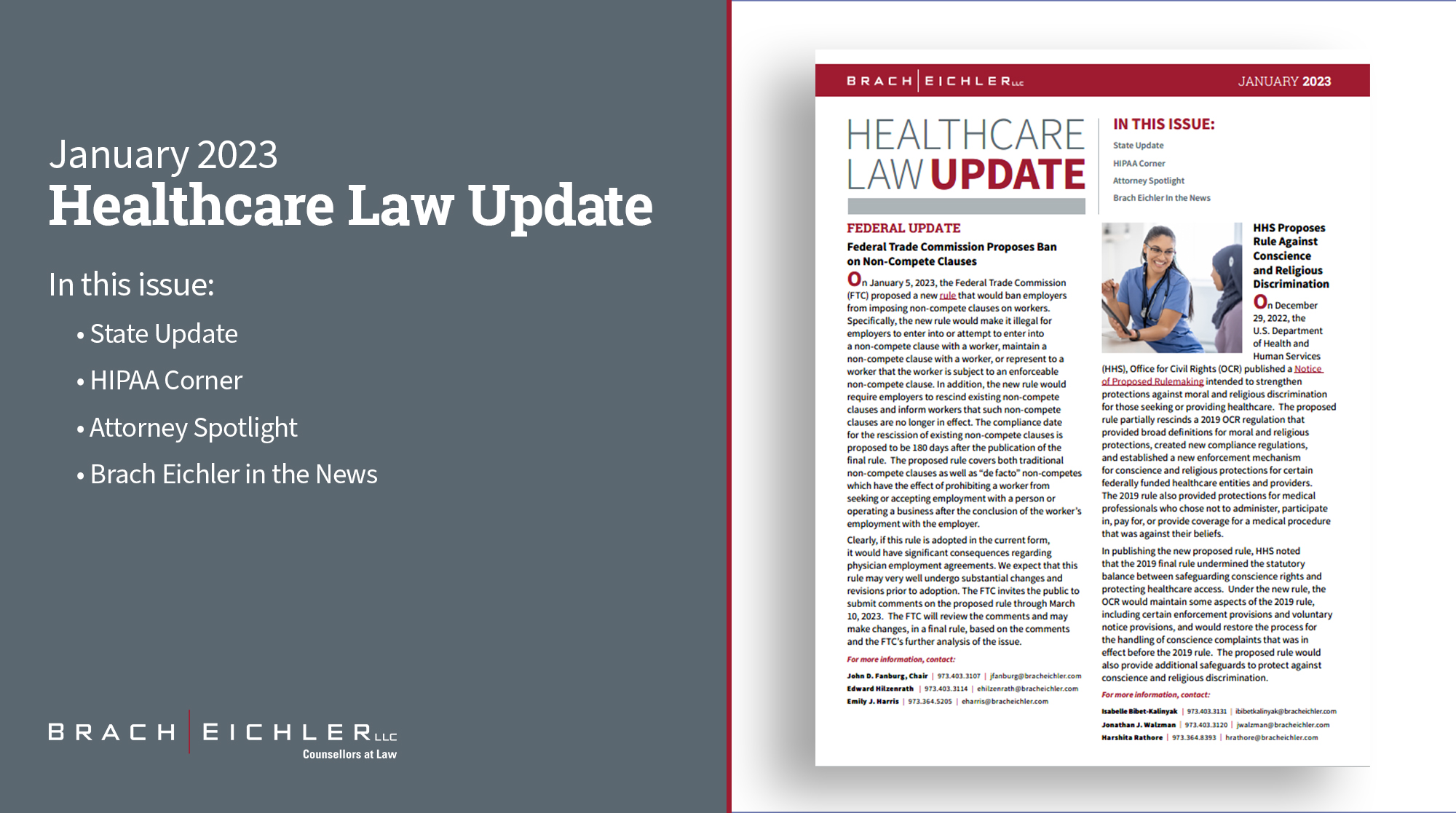
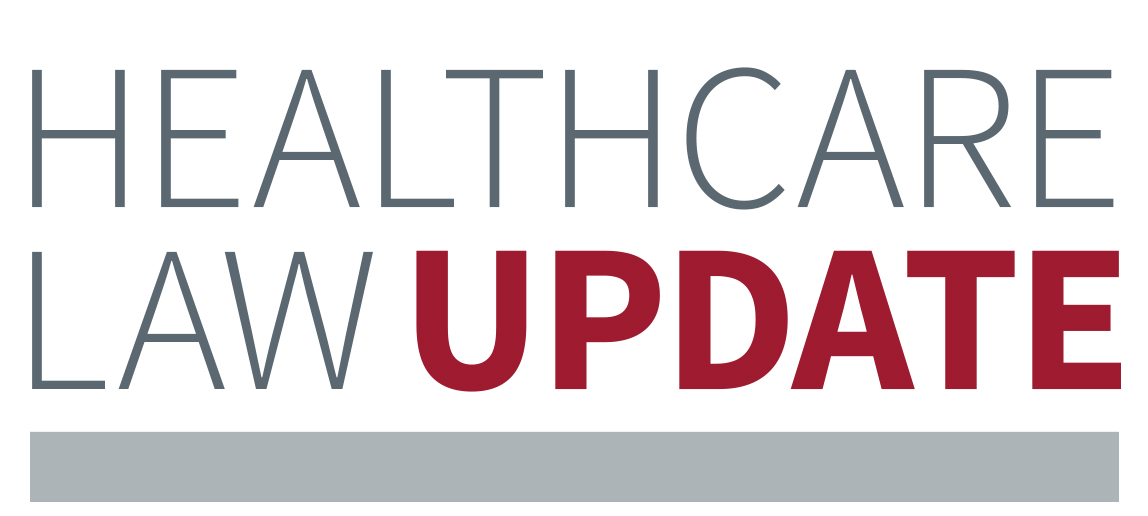
On January 5, 2023, the Federal Trade Commission (FTC) proposed a new rule that would ban employers from imposing non-compete clauses on workers. Specifically, the new rule would make it illegal for employers to enter into or attempt to enter into a non-compete clause with a worker, maintain a non-compete clause with a worker, or represent to a worker that the worker is subject to an enforceable non-compete clause. In addition, the new rule would require employers to rescind existing non-compete clauses and inform workers that such non-compete clauses are no longer in effect. The compliance date for the rescission of existing non-compete clauses is proposed to be 180 days after the publication of the final rule. The proposed rule covers both traditional non-compete clauses as well as “de facto” non-competes which have the effect of prohibiting a worker from seeking or accepting employment with a person or operating a business after the conclusion of the worker’s employment with the employer.
Clearly, if this rule is adopted in its current form, it would have significant consequences regarding physician employment agreements. We expect that this rule may very well undergo substantial changes and revisions prior to adoption. The FTC invites the public to submit comments on the proposed rule through March 10, 2023. The FTC will review the comments and may make changes, in a final rule, based on the comments and the FTC’s further analysis of the issue.
For more information, contact:
John D. Fanburg, Chair | 973.403.3107 | jfanburg@bracheichler.com
Edward Hilzenrath | 973.403.3114 | ehilzenrath@bracheichler.com
Emily J. Harris | 973.364.5205 | eharris@bracheichler.com
In This Issue:
State Update
HIPAA Corner
Attorney Spotlight
Brach Eichler In The News
On December 29, 2022, the U.S. Department of Health and Human Services (HHS), Office for Civil Rights (OCR) published a Notice of Proposed Rulemaking intended to strengthen protections against moral and religious discrimination for those seeking or providing healthcare. The proposed rule partially rescinds a 2019 OCR regulation that provided broad definitions for moral and religious protections, created new compliance regulations, and established a new enforcement mechanism for conscience and religious protections for certain federally funded healthcare entities and providers. The 2019 rule also provided protections for medical professionals who chose not to administer, participate in, pay for, or provide coverage for a medical procedure that was against their beliefs.
In publishing the new proposed rule, HHS noted that the 2019 final rule undermined the statutory balance between safeguarding conscience rights and protecting healthcare access. Under the new rule, the OCR would maintain some aspects of the 2019 rule, including certain enforcement provisions and voluntary notice provisions, and would restore the process for the handling of conscience complaints that was in effect before the 2019 rule. The proposed rule would also provide additional safeguards to protect against conscience and religious discrimination.
For more information, contact:
Isabelle Bibet-Kalinyak | 973.403.3131 | ibibetkalinyak@bracheichler.com
Jonathan J. Walzman | 973.403.3120 | jwalzman@bracheichler.com
Harshita Rathore | 973.364.8393 | hrathore@bracheichler.com
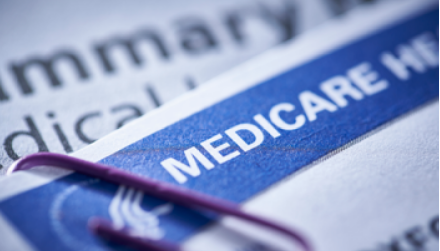
On December 29, 2022, President Biden signed into law the Consolidated Appropriations Act, 2023, a $1.7 trillion omnibus spending bill that includes several provisions that impact healthcare providers and reimbursements. The new law includes a rollback of a 4.5% reduction in Medicare physician payment rates that were set to take effect on January 1, 2023, delays a statutory 4% reduction to reimbursements under the federal Pay-As-You-Go program for two years, and delays by one-year certain reductions in payments for clinical laboratory tests and data reporting requirements under the Clinical Laboratory Fee Schedule. The new law also extends for two years various rural Medicare programs and telehealth and hospital-at-home waivers that were put in place in response to the COVID-19 public health emergency.
The new law includes increased Medicare funding for healthcare staffing, including 200 additional Medicare-funded Graduate Medical Education slots, at least half of which will be dedicated to psychiatry and psychiatry subspecialty residencies, and includes provisions for expanding access to behavioral health services for Medicare beneficiaries. The new law also includes requirements related to Medicaid redeterminations, Medicaid benefits for post-partum care, and continuous coverage for Medicaid-eligible children. In response to the government’s response to the COVID-19 pandemic, the legislation also includes measures intended to improve the government’s ability to prepare for emergencies.
For more information, contact:
Joseph M. Gorrell | 973.403.3112 | jgorrell@bracheichler.com
Jonathan J. Walzman | 973.403.3120 | jwalzman@bracheichler.com
Sally Olson | 973.403.3102 | solson@bracheichler.com
On December 19, 2022, the U.S. Department of Health and Human Services, Office of Inspector General (OIG) published Advisory Opinion No. 22-20 allowing a hospital to provide access to the services of its employed nurse practitioners (NPs) free of charge to attending physicians (Physicians). Specifically, the OIG considered whether the arrangement violated the federal Anti-Kickback Statute (AKS) because the hospital’s provision of NP services free of charge could potentially induce referrals from Physicians.
Under the arrangement, the hospital allowed its NPs to furnish inpatient and observation services for a Physician’s patients at two of the hospital’s medical units. This included services that the Physician would traditionally furnish, such as initiating care plans, implementing care protocols, making rounds, responding to laboratory or imaging studies, addressing rapid changes in patients’ conditions, educating and supporting patients and families, overseeing unit-based quality improvement projects, and discharge planning. All Physicians with privileges at the two medical units were informed of the arrangement and were allowed to participate in the arrangement without regard to the volume or value of a Physician’s referrals. In addition, Physicians were largely primary care physicians, only billed for services the Physicians personally furnished and were prohibited from billing for the services furnished by the NPs. Although the hospital paid for all of the services furnished by the NPs, the hospital did not separately bill for the services furnished by the NPs.
In reviewing the arrangement, the OIG determined that the hospital’s provision of free or below fair market value goods or services to Physicians in a position to refer has the potential to violate the AKS. This is because Physicians could offload services to NPs that would otherwise require their time and attention and allow Physicians to furnish other services reimbursable by federal healthcare programs. However, the OIG noted several safeguards that mitigate the potential risk of fraud and abuse under the AKS. First, Physicians participating in the arrangement were predominantly primary care physicians, not surgeons or specialists who typically make lucrative referrals. Next, the arrangement was not aimed at any specific physicians with a history or expectation of higher referral volume. In addition, Physicians were not receiving production
credit or any additional compensation for the services furnished by NPs. To assure potential quality concerns, all NP services were performed through communication and collaboration with Physicians. Further, Physicians were also required to round daily and maintain ultimate accountability for the patient’s care. Finally, the hospital did not bill any payors, including federal healthcare programs, for services furnished by the NPs, though these services may be separately reimbursable.
As a result of these safeguards, the OIG concluded that the arrangement presented a low risk of fraud and abuse and determined that it would not pursue administrative sanctions against the hospital.
For more information, contact:
John D. Fanburg, Chair | 973.403.3107 | jfanburg@bracheichler.com
Carol Grelecki | 973.403.3140 | cgrelecki@bracheichler.com
Edward J. Yun | 973.364.5229 | eyun@bracheichler.com
On December 20, 2022, the U.S. District Court for the Eastern District of Texas heard arguments in the Texas Medical Association’s (TMA) second lawsuit challenging the Federal No Surprises Act. The TMA argued that the implementation of certain provisions in the final rule which implemented the No Surprises Act provided an unfair advantage to insurers and deprived physicians of the fair and impartial arbitration process that the No Surprises Act was meant to ensure.
More specifically, TMA’s lawsuit focuses on how the final rule requires arbitrators to first consider the qualifying payment amount (QPA) when determining the proper rate of reimbursement in a payment dispute. The QPA is meant to represent the median in-network rate under the law. However, TMA noted that because QPA is calculated by the insurer, the starting point in payment disputes is skewed in favor of the insurer. TMA’s lawsuit outlined four ways in which insurers’ calculation of QPA allows for deflated rates of reimbursement:
1. Insurers are permitted to include “ghost rates” in their QPA calculations, meaning insurers can include the contract rates of physicians who might not provide the health service in question. Some ghost rates can be as low as $1, which is not reflective of the market rate.
2. Insurers are permitted to include the rates of physicians who are not in the same or similar specialty as those physicians involved in the payment dispute.
3. Insurers are permitted to use an amount other than the total payment in their QPA calculation. For example, if there was a penalty applied that lowered the payment amount, insurers could use that figure in their QPA calculation.
4. Insurers are permitted to use the contracted rates determined by third-party administrators in self-insured group health plans in their QPA calculation. The rates determined by third-party administrators in self-insured group health plans can be lower than the market rate.
Patient advocacy groups and insurers argued the final rule does not place physicians and other medical providers at a disadvantage. Rather, the final rule instructs arbitrators to only weigh credible information when determining the rate of reimbursement.
For more information, contact:
Keith J. Roberts | 973.364.5201 | kroberts@bracheichler.com
Caroline J. Patterson | 973.403.3141 | cpatterson@bracheichler.com
Emily J. Harris | 973.364.5205 | eharris@bracheichler.com
On December 20, 2022, the U.S. Department of Health and Human Services (HHS) made available to the public ownership data for Medicare-certified hospitals. HHS’s release of the ownership data is in response to President Joseph Biden’s Executive Order dated July 9, 2021, which directed agencies like HHS to consider using their authority to adopt policies that promote and protect conditions of fair competition. As such, HHS will list on the CMS website ownership information for 7,000 Medicare-participating hospitals. The data set will include enrollment information (organization name, type, location, NPI, and CMS Certification Number), owner information (including direct and indirect owners), and an ID link for each owner for consumers to identify common ownership. CMS expects to release updated hospital ownership data monthly. HHS believes the release of this information encourages transparency and affords the public the ability to make informed decisions regarding healthcare, which aligns with the goals of the Executive Order.
For more information, contact:
Isabelle Bibet-Kalinyak | 973.403.3131 | ibibetkalinyak@bracheichler.com
Caroline J. Patterson | 973.403.3141 | cpatterson@bracheichler.com
Erika R. Marshall | 973.364.5236 | emarshall@bracheichler.com
On December 14, 2022, the United States Department of Justice (DOJ) announced that a physician and his office manager, who is the physician’s wife, agreed to pay $422,789 to settle allegations against them under the False Claims Act. The physician and his wife allegedly received illegal kickbacks in violation of the Anti-Kickback Statute in return for the physician’s referrals to three laboratories in New Jersey, South Carolina, and Texas. The Anti-Kickback Statue prohibits offering, paying, soliciting, or receiving remuneration to induce referrals of items or services covered by Medicare, Medicaid, and other federally funded healthcare programs.
With respect to New Jersey, the physician allegedly received thousands of dollars in kickbacks disguised as investment returns from Avior Group LLC, a purported management services organization, in exchange for referring laboratory tests to RDx Bioscience, Inc., a clinical laboratory in Kenilworth, New Jersey. Under the settlement, the physician and his wife agreed to cooperate with the DOJ’s investigation of, and litigation against, other participants in the alleged schemes.
In the press release announcing the settlement, U.S. Attorney for the District of New Jersey, Phillip R. Sellinger, stated, “Patients deserve to know that the decisions their healthcare providers are making are based solely on their medical needs, not on some profit-making scheme. Our office will continue to pursue anyone responsible for actions that have the potential to corrupt the medical-decision making process.”
For more information, contact:
Riza I. Dagli | 973.403.3103 | rdagli@bracheichler.com
Edward J. Yun | 973.364.5229 | eyun@bracheichler.com
Cynthia J. Liba | 973.403.3106 | cliba@bracheichler.com

On January 20, 2023, the Commissioner of the New Jersey Department of Health (NJDOH) issued a revised Executive Directive 20-016 (Revised ED) setting forth COVID-19 protocols for ambulatory surgery centers (ASCs) performing elective surgeries and invasive procedures. This Revised ED is in response to the current phase of the COVID-19 emergency.
Generally, the Revised ED requires ASCs to take the following steps to protect its healthcare workforce, patients and visitors:
• Comply with all current (a) infection prevention and control recommendations, (b) interim guidance for managing healthcare personnel with infection with, or exposure to, SARS CoV-2, (c) interim guidance on ending isolation and precautions for people with COVID-19, and (d) strategies to mitigate healthcare personnel staffing shortages, from the Centers for Disease Control and Prevention (CDC).
• Comply with all current Centers for Medicare and Medicaid Services (CMS) requirements, including staff vaccination requirements, if the ASC is CMS certified.
• Comply with state and local public health authority requirements for identification, reporting, and containing communicable diseases and outbreaks.
• Continue to monitor the CDC Community Transmission Levels reported on the CDC COVID-19 Data Tracker and included in the weekly NJDOH COVID-19 Surveillance Report and to modify clinical services as appropriate.
Moreover, ASCs must have onsite an adequate supply of personal protective equipment (PPE), including gloves, gowns, surgical masks, eye protection, N95 respirators or higher, in accordance with NIOSH and FDA.
Finally, ASCs must have policies addressing support persons and visitors that prioritize the safety and well-being of patients, patient support persons, and staff. To that end, until further notice, visitors and support persons are allowed, consistent with CMS requirements and guidance. Moreover, when visitation and support is otherwise restricted, support persons may obtain waivers from the NJDOH.
The Revised ED takes effect immediately and shall remain in full force and effect until revoked or modified by the NJDOH or until the State of Emergency is no longer in effect, whichever is sooner. Brach Eichler will issue a special alert on this topic shortly.
For more information, contact:
John D. Fanburg, Chair | 973.403.3107 | jfanburg@bracheichler.com
Edward J. Yun | 973.364.5229 | eyun@bracheichler.com
Cynthia J. Liba | 973.403.3106 | cliba@bracheichler.com

Assembly Bill 4921, introduced in the New Jersey Assembly on December 5, 2022, would waive the 15-day waiting period between the oral requests for a terminally ill patient who, within reasonable medical certainty, is not expected to survive 15 days. Under current law, a terminally ill patient must make two oral requests at least 15 days apart, and one written request for medication, which may be submitted at any time, with at least 15 days between the initial oral request and the issuance of a prescription for the medication. This Bill maintains the 48-hour waiting period between the submission of a written request and the issuance of the prescription for medication.
Assembly Bill 4911, introduced in the New Jersey Assembly on December 5, 2022, would establish the Psilocybin Behavioral Health Access and Services Act (the “Act”). The Act would authorize the regulated production and use of psilocybin for behavioral healthcare and treatment. According to the Bill, New Jersey has a high number of adults living with behavioral health conditions. Furthermore, the Bill provides that national and international studies indicate that psilocybin has shown efficacy, tolerability, and safety in the treatment of a variety of behavioral health conditions such as clinical dependence disorders, depression, anxiety disorders, and end-of-life psychological distress.
Assembly Bill 4914, introduced in the New Jersey Assembly on December 5, 2022, would authorize the New Jersey Department of Health to establish a program to permit a hospital to provide acute care services to a covered person outside of the hospital’s licensed facility and within a private residence designated by the covered person. New Jersey’s program would need to be consistent with the provisions of the Centers for Medicare and Medicaid Services (CMS) Acute Hospital Care at Home Program. Any hospital with a waiver to operate or approved to participate in CMS’ Acute Hospital Care at Home Program before this Bill’s effective date would be permitted to continue to operate in the same manner as previously permitted under federal law and would be integrated into the New Jersey program.
Assembly Bill 4944, introduced in the New Jersey Assembly on December 8, 2022, would authorize the medical use of cannabis for the treatment of sickle cell anemia. The Bill states that the medical use of cannabis can treat or alleviate the pain or other symptoms associated with sickle cell anemia.
Senate Bill 3343, introduced in the New Jersey State Senate on December 1, 2022, would limit attorney contingent fee arrangements in certain medical malpractice cases to the following: 25% if settled before a civil complaint or demand for arbitration is filed and 33% if settled, arbitrated, or adjudged after a civil complaint or demand for arbitration is filed. If an action is tried or arbitrated, the plaintiff would be permitted to file a motion for a contingency fee over these percentages. Currently, New Jersey does not have a limit to the amount that can be recovered for noneconomic loss. This Bill would establish a $250,000 cap for actions not involving wrongful death and $500,000 for actions involving wrongful death. The Bill would provide for annual increases to these limitations.
For more information, contact:
John D. Fanburg, Chair | 973.403.3107 | jfanburg@bracheichler.com
Edward Hilzenrath | 973.403.3114 | ehilzenrath@bracheichler.com
Vanessa Coleman | 973.364.5208 | vcoleman@bracheichler.com
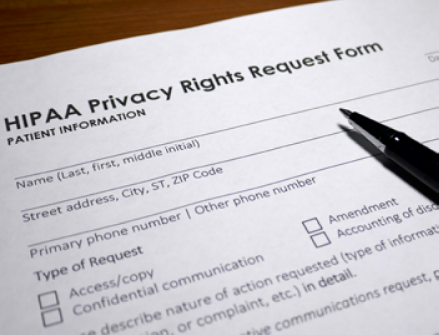
The Department of Health & Human Services, Office for Civil Rights (OCR) has published its “Enforcement Highlights” as of the end of the calendar year 2022. Since the 2003 Privacy Rule compliance date, the OCR has received more than 317,079 HIPAA complaints and has initiated over 1,149 compliance reviews. Resolution of complaints for which the OCR makes a
negative finding may result in the provision of technical assistance by the OCR (for minor infractions) or may result in a settlement agreement under which the violating entity agrees to a monetary fine, a corrective action plan, and monitoring for a period of time. As of December 31, 2022, the OCR settled or imposed civil money penalties exceeding $133 million over a total of 129 cases.
In the order of frequency, the most commonly-alleged complaints were:
• Impermissible uses and disclosures of protected health information (PHI);
• Lack of safeguards of PHI;
• Lack of patient access to their PHI;
• Lack of administrative safeguards of electronic PHI; and
• Use or disclosure of more than the minimum necessary PHI.
The most common types of covered entities that have been alleged to violate HIPAA, in order of frequency, are general hospitals, private practices and physicians, pharmacies, outpatient facilities, and community health centers.
The takeaway is that the most frequent HIPAA complaints received by the OCR are largely preventable by having in place a robust HIPAA compliance program, one or more HIPAA compliance officials, security safeguards, and frequent and meaningful staff training.
For more information or if you need assistance with your HIPAA compliance program, please contact:
Lani M. Dornfeld, CHPC | 973.403.3136 | ldornfeld@bracheichler.com
This month, we are pleased to welcome Richard B. Robins, Member, to our Healthcare Practice.
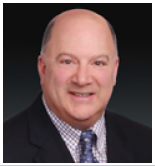 RICHARD B. ROBINS represents hospitals, physicians, dentists, and other health care practitioners and civil litigants in state and federal trial and appellate courts, licensure and arbitration proceedings, and transactional matters. Richard also represents clients in criminal matters, including health care and kickback investigations, prosecutions, and parole disputes. He has successfully litigated actions in the New Jersey Supreme Court and other jurisdictions including complex breach of contract, employment discrimination, restrictive covenant, denial of medical staff privileges, retaliatory discharge, and contested guardianship cases. Richard also represents clients in complex business and medical and dental practice formation matters including new member buy-ins, employment agreements, terminations, contract negotiations and disputes, and in disciplinary proceedings before licensing and regulatory boards.
RICHARD B. ROBINS represents hospitals, physicians, dentists, and other health care practitioners and civil litigants in state and federal trial and appellate courts, licensure and arbitration proceedings, and transactional matters. Richard also represents clients in criminal matters, including health care and kickback investigations, prosecutions, and parole disputes. He has successfully litigated actions in the New Jersey Supreme Court and other jurisdictions including complex breach of contract, employment discrimination, restrictive covenant, denial of medical staff privileges, retaliatory discharge, and contested guardianship cases. Richard also represents clients in complex business and medical and dental practice formation matters including new member buy-ins, employment agreements, terminations, contract negotiations and disputes, and in disciplinary proceedings before licensing and regulatory boards.
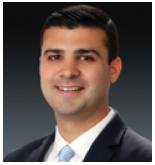 Get to know the faces and stories of the people behind the articles in each issue. We invite you to meet Associate Paul J. DeMartino, Jr.
Get to know the faces and stories of the people behind the articles in each issue. We invite you to meet Associate Paul J. DeMartino, Jr.
Briefly describe a recent significant transaction, win or client victory.
I represented an anesthesiologist who was being sued by his former employer, a private equity-based national anesthesia company attempting to enforce his restrictive covenant and prevent him from working. Despite the client’s employment agreement which called for the private arbitration costs of the litigation to be split equally amongst our client and his employer, the three-person arbitration panel granted our motion to have the employer pay for the entirety of the arbitration costs based on the circumstances and equities at issue. Shortly after this favorable ruling for our client, the parties reached a settlement, which enabled our client to continue working.
Why did you choose to focus your legal practice on healthcare law and the healthcare industry?
As the son of a physician, I was exposed to the overlap between healthcare and business at a young age. More specifically, I have seen first-hand the delicate issues that physicians and medical providers navigate daily from a clinical and regulatory perspective to the interpolitics between practice members, partners, employees, and hospital staff. Given this background coupled with my practical experience representing closely held companies in a variety of complex business disputes, I chose to focus on healthcare law as representing medical providers and advocating for their rights and interests has always been a passion of mine.

On January 16, Lani Dornfeld bylined an article for NJBiz entitled “Why health care providers of all sizes can’t afford not to comply with HIPAA.”
On January 5, The New Jersey Law Journal announced that Judge Chrystal launched her Alternative Dispute Resolution practice at Brach Eichler in “On the Move.”
On January 1, the following Healthcare Law Members were promoted to Members! Congratulations to Shannon Carroll and Caroline Patterson.
On December 4, Healthcare Member Lani Dornfeld was quoted in Relias Media magazine about “Providing Frequent HIPAA Training with Real-World Scenarios”
Join us for the 12th Annual New Jersey Healthcare Market Review, September 28-29, 2023 at the Borgata Hotel Casino & Spa, Atlantic City, NJ! Connect with over 200 attendees comprised of hospital and ASC executives and stakeholders, physicians, practice owners/managers, and healthcare administrators. During this two-day event, industry experts will discuss timely topics and trends in the healthcare and legal space ranging from legislative issues to operating and business strategies for greater profitability. To learn more and register, please visit https://www.njhmr.com/. For questions or additional information, please reach out to Ilana Schackman at ischackman@bracheichler.com.

Attorney Advertising: This publication is designed to provide Brach Eichler LLC clients and
contacts with information they can use to more effectively manage their businesses. The contents
of this publication are for informational purposes only. Neither this publication nor the lawyers who
authored it are rendering legal or other professional advice or opinions on specific facts or matters.
Brach Eichler LLC assumes no liability in connection with the use of this publication.

Shannon Carroll | 973.403.3126 | scarroll@bracheichler.com
Riza I. Dagli | 973.403.3103 | rdagli@bracheichler.com
Lani M. Dornfeld | 973.403.3136 | ldornfeld@bracheichler.com
John D. Fanburg, Chair | 973.403.3107 | jfanburg@bracheichler.com
Joseph M. Gorrell | 973.403.3112 | jgorrell@bracheichler.com
Carol Grelecki | 973.403.3140 | cgrelecki@bracheichler.com
Caroline J. Patterson | 973.403.3141 | cpatterson@bracheichler.com
Keith J. Roberts | 973.364.5201 | kroberts@bracheichler.com
Richard B. Robins | 973.447.9663 | rrobins@bracheichler.com
Jonathan J. Walzman | 973.403.3120 | jwalzman@bracheichler.com
Edward J. Yun | 973.364.5229 | eyun@bracheichler.com
Paul J. DeMartino, Jr. | 973.364.5228 | pdemartino@bracheichler.com
Emily J. Harris | 973.364.5205 | eharris@bracheichler.com
James J. Ko | 973.403.3147 | jko@bracheichler.com
Erika R. Marshall | 973.364.5236 | emarshall@bracheichler.com
Sally Olson | 973.403.3102 | solson@bracheichler.com
Harshita Rathore | 973.364.8393 | hrathore@bracheichler.com
Roseland, NJ | New York, NY | West Palm Beach, FL | www.bracheichler.com | 973.228.5700


